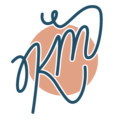In Part 3, the final installment of this series, we continue to explore differentiating instruction (content, process and product) for on-target learners. Part 3 offers suggestions for product differentiation for on-target learners.
To recap from Part 1 and Part 2: On-target learners comprehend concepts rapidly and display a solid mastery of the subject matter. They thrive in a traditional classroom setup, and teachers generally don’t encounter challenges with their classroom behavior. Typically, educators don’t find it necessary to adapt their teaching methods for this particular group. The main goal of process differentiation for this group of learners is engaging them in sense-making activities that captures their interests and engages them in higher-order thinking. Flexible grouping strategies, such as Think-Pair-Share or Jigsaw, as well as individual assignments based on readiness, interest or learning preference are excellent ways to differentiate the teaching/learning process!
Trifecta of Product Differentiation – Sense-Making, Performance Tasks, and Products
Sense-making activities prompt students to create, accomplish, or articulate something that serves as proof of their newfound knowledge within a short timeframe, typically spanning one or two class periods. These activities are formative, transpiring during practice phases, and are generally not graded (Tomlinson, 2017). However, they serve as valuable opportunities for teachers to offer formative feedback, aiding students in advancing their levels of knowledge, comprehension, and skill. These activities might involve showcasing mastery of specific content or applying that content.
Performance tasks go beyond the brevity and scope of sense-making activities. Performance tasks (also referred to as performance assessments) demand students to exhibit their proficiency over more prolonged learning segments (Tomlinson, 2017). They frequently occur midway through a marking period or at the conclusion of chapters or units. These tasks are carefully designed to gauge the effectiveness of a student’s application and transfer of learned concepts (Tomlinson, 2017). Conducted in class within specified timeframes, performance tasks assume a summative nature and they are typically graded.
Products can be the summative differentiated assessment at the conclusion of significant learning periods, such as units, marking periods, or semesters. Similarly to performance tasks, products require students to exhibit proficiency in essential knowledge, understanding, and skills, applying and transferring their learning to real-world contexts (Tomlinson, 2017). While maintaining a summative nature like performance tasks, differentiated products offer greater flexibility and/or student choice and accommodate student interests and voices. These assignments, which usually take longer to complete, foster in-depth and comprehensive student engagement, often necessitating both in-class and out-of-class efforts (Tomlinson, 2017). Well-designed product assignments can serve as a source of great motivation for students. They encourage students not only to demonstrate their critical learning but also to extend it by applying the acquired knowledge to their personal areas of interest
Conclusion
As we come to the end of our exploration into differentiating for the on-target learner, it’s apparent that a one-size-fits-all approach falls short in helping these learners shine! Fully embracing differentiation could be the key factor in aiding them to discover their potential, propelling them from being an average, in-the-middle, on-target learners to advanced and perpetually curious lifelong learners!
References:
How do teachers differentiate instruction? (n.d.). Retrieved from https://iris.peabody.vanderbilt.edu/module/di/cresource/q2/p07/
Tomlinson, C. A. (2017). How to Differentiate Instruction in Academically Diverse Classrooms (3rd ed.). Association of Supervision and Curriculum Development (ASCD).
Engage KM Educational Consulting for your professional development and instructional coaching needs!
Let us plan your professional development for one year or more to help you meet your school’s academic goal! We will custom-design your faculty workshops to engage and inspire teachers with innovative approaches and practical resources. We will coach individual teachers on instructional methods and technology integration to enhance student engagement.

